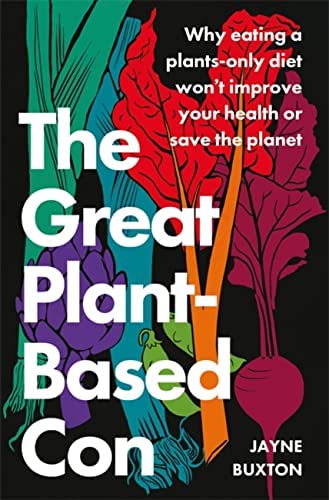“People are trying to do the right thing. And no wonder it’s hard, because they’re being given confusing messages.”
.
It’s that time of year when we vow to ‘live a more healthy lifestyle’: Dry January, Veganuary and resolutions: What you need to know – BBC News
One way might be to try out a vegan diet: Veganuary 2023 | Home | The Go Vegan 31 Day Challenge
And it is getting easier to try: Veganuary 2023: 5 apps to help you go vegan this January | Metro News
As this piece from today’s Mirror suggests, there are advantages and disadvantages when it comes to your health:
It’s an annual challenge run by a UK nonprofit that promotes and educates about veganism by encouraging people to follow a vegan lifestyle for the whole month of January. But what happens when you go cold turkey and cut out all meat and dairy? Here we take a look at what the latest studies suggest… What happens to your body when you cut out meat and dairy for Veganuary – Mirror Online
These news pages have looked at the pros and cons over the years: Veganuary vs Regenuary – Vision Group for Sidmouth (2021) and Veganuary: the issues – Vision Group for Sidmouth (2020)
Looking at both the global impact: Will meat-free save the planet? – Vision Group for Sidmouth
And the local impact: How would plant-based farming impact the South West? – Vision Group for Sidmouth
The issues do indeed excite a lot of passion: Greendale farm shop has record-breaking day after vegan vandals leave hate graffiti – Vision Group for Sidmouth (2018)
In the summer, a book came out challenging many of the notions around a vegan diet: Plant-based diet is not so virtuous or healthy, says new book
Its author Jayne Rees Buxton is an ambassador for the Real Food Campaign and the Public Health Collaboration, organisations working to leverage the power of real food to improve public health: About — Jayne Rees Buxton
Today’s Telegraph republishes its piece from the summer to coincide with Veganuary: it’s a long read, so here are a couple of excerpts from the top – but do read the compete article:
The great vegan diet ‘con’

It may be Veganuary, but a plant-based lifestyle isn’t better for your health and it certainly won’t save the planet
Canola oil, yeast, acidity regulator, methylcellulose, corn oil thickener, starch, gelling agent. “Hmm, I don’t like agents in my food,” says Jayne Buxton. We’re in the refrigerator aisle of a well-known, high-end health-food supermarket in Richmond, London, reading the backs of packets of vegan sausages, burgers et al. As far as vegan products go, we’re dining at the Ritz.
Pastrami-style slices, scrambled tofu, vegan chorizo slices, jackfruit rendang, a canister of No-Egg Egg for £4.99. “That’s more than a carton of eggs,” says Buxton as she scans the ingredients. Gum cellulose dextrose, “That’s sugar. Do you want sugar with your eggs?” You would expect the quality here to be better than anywhere else, but nutritionally, says Buxton, it’s a wasteland of chemicals and oils where nutritious protein should be. “Someone’s going to arrest us in a minute,” she jokes. It does feel subversive. Like we’re poking around in veganism’s knicker drawer.
In recent years, we’ve been told by Netflix documentaries, vegan activists and companies selling plant-based products that going vegan is the single best thing you can do to improve your own health, the planet’s and the wellbeing of the animals we share it with. However, four years ago, Jayne Buxton started to question the received wisdom. What she saw in documentaries and news outlets, she says, was at odds with the very few facts she knew. “When the documentary Cowspiracy came out and said 51 per cent of emissions are from livestock, I knew that was not true. I knew that the official global number was 14.5 per cent, according to the Food and Agriculture Organisation of the United Nations. And even that is an exaggerated number.”
Buxton, a former management consultant with an MBA, is trained to look at data critically. She began researching the topic of food, health and the environment (specifically, the impact of meat and plant-based diets on human and planetary health) and she realised the extent of the misinformation around both the health and environmental impact of meat-eating, and that the benefits of plant-only diets were being exaggerated.
“People are trying to do the right thing. And no wonder it’s hard, because they’re being given confusing messages.”
Buxton searched for the answers to these questions: is a plant-based diet better for your health? Will it save the planet? Who is pushing the plant-based diet and why? And how should we eat?
She decided to turn her research into a book: The Great Plant-Based Con. The “con” refers to the gradual conditioning of the public’s thought processes by a constellation of individuals and organisations, “who may well believe in the truth of the views they express, but present things that are far from certain as established fact”.
She’s not oblivious to the hornets’ nest she’s about to poke. However, she feels that hers is one of a growing number of voices pushing back against the “dogma” of veganism, citing the likes of food writer Joanna Blythman and shepherd and author James Rebanks. Many of the scientists she spoke to appreciated what she was doing. “They are often working at a distance from the lay person. There is debate happening at their level, but they can sometimes struggle to reach a popular audience.”
.